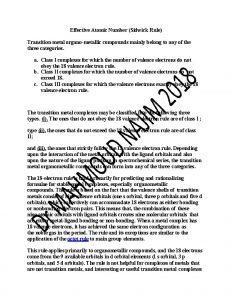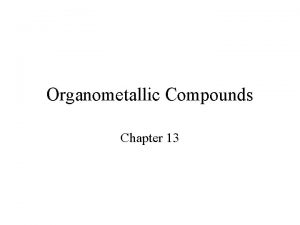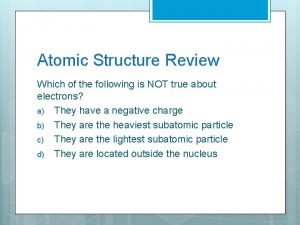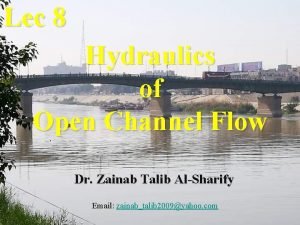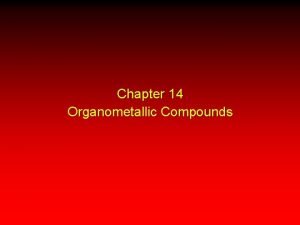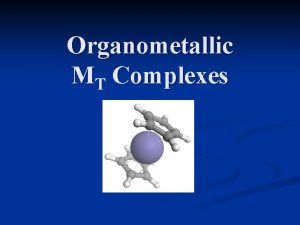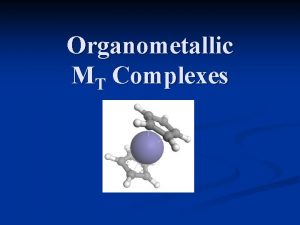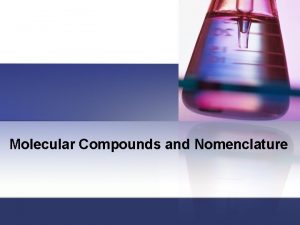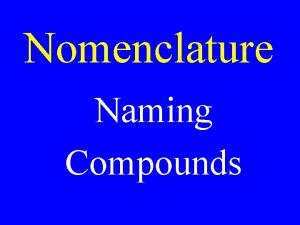Organometallic compounds Nomenclature the polarisation depends upon the








- Slides: 8

Organometallic compounds Nomenclature the polarisation depends upon the character of the metal methylsodium ethylmethylcadmium butyllithium tetraethylplumbium methylmagnesiumbromid phenyllithium

Organometallic compounds reactivity of the compound depends upon the quality of the metal – its position in periodic systeme Reactivity: 1. Basicity – extrem basicity 2. Nucleophility To show basicity a presence of acid is needed, it is necessary interaction of two partners mostly we are considering reactions in water but also a lot of reactions proceeds in nonaqueous medium, but also there one partner may be an acid and the other a base Theory of HSAB: Arhenius, Bronstead

Organometallic compounds Reactivity: 1. Basicity – extrem basicity 2. Nucleophility K 1 p. Ka 1 = 25 B 2 RELATIVITY ACID vs. BASE B 1 K 2 p. Ka 2 = 50

Organometallic compounds reactivity of organometal depends upon its position in periodic system Reactivity: 1. Basicity – extrem basicity 2. Nucleophility strong nucleophile in case in the molecule is not acidic atom, then reacts as nucleophile

Organometallic compounds reactivity of organometal depends upon its position in periodic system Reactivity: 1. Basicity – extrem basicity 2. Nucleophility depression of nucleophility by a tranfer to cuprates Gilman reagent

Organometallic compounds Methodes of preparation: 1. Reaction alkyl halogenides with metals sometimes combined systemes Grignard reagent ether Reformatsky

Organometallic compounds this is imposible to use for organometals with Na and K WURTZ Mechanism: 2. exchange reaction between organometal and salt of other metal M is more elektropozitive than metal M 1, X is halogen

Organometallic compounds 3. application of acidic hydrogen atoms in a molecule
